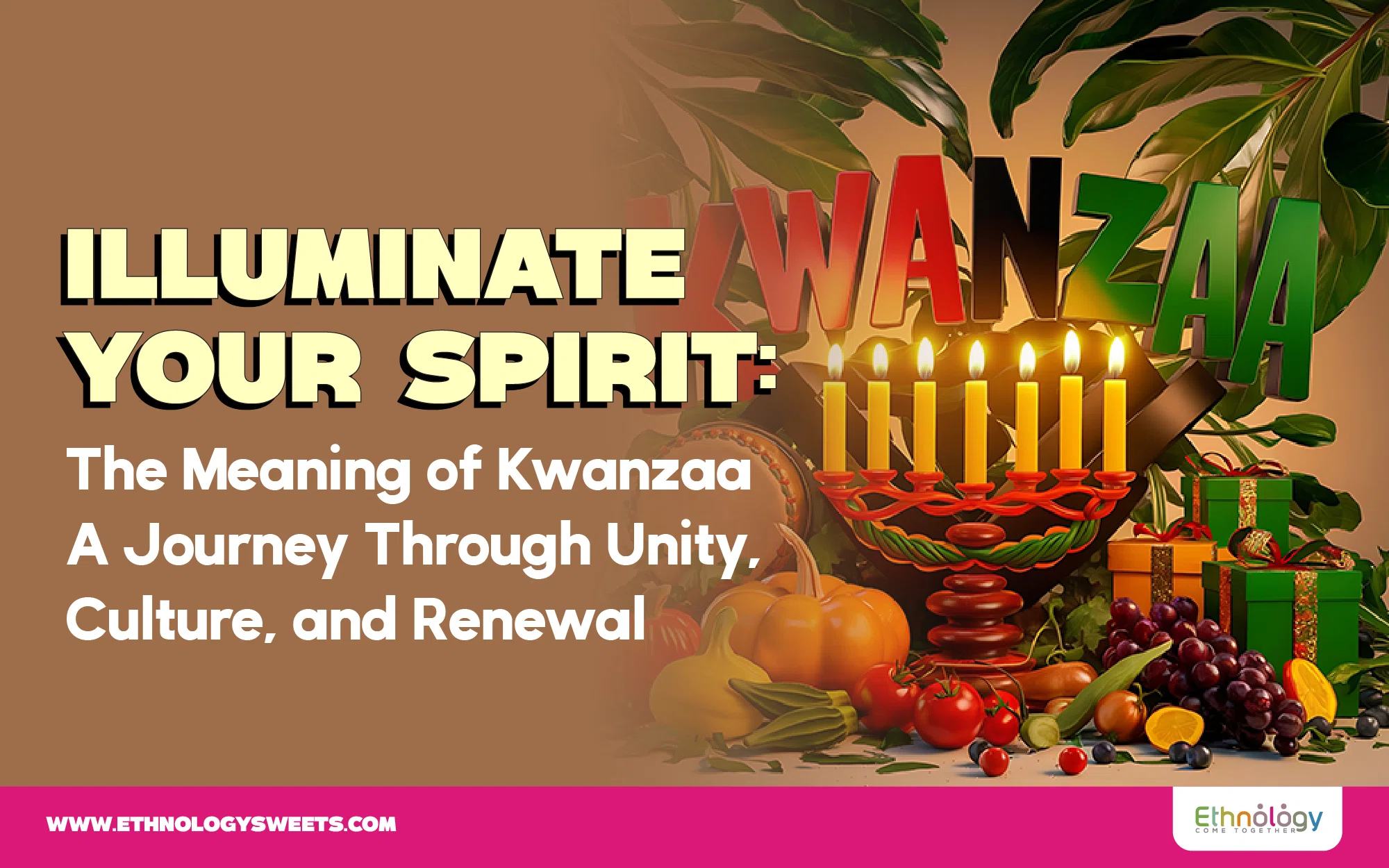Kwanza – The Candle-Lighting Ceremony and the Seven Principles
The name Kwanzaa is derived from the phrase “matunda ya kwanza” which means “first fruits” in Swahili. Kwanzaa is celebrated by the families in its own way, but often include songs and dances, African drums, storytelling, poetry reading, and a large traditional meal. During seven nights, the family gathers and a child lights one of the candles on the Kinara (candleholder), then one of the seven principles is discussed. The principles, called the Nguzo Saba (seven principles in Swahili) These principles are values of African culture which contribute to building and reinforcing community among African-Americans. Kwanzaa also has seven basic symbols which represent values and concepts reflective of African culture. An African feast, called a Karamu, is held on December 31.
The candle-lighting ceremony
Each evening provides the opportunity to gather and discuss the meaning of Kwanzaa. The first night, the black candle in the center is lit (and the principle of umoja/unity is discussed). One candle is lit each evening and the appropriate principle is discussed.
The seven principles, or Nguzo Saba
The seven principles are a set of ideals created by Dr. Maulana Karenga. Each day of Kwanzaa emphasizes a different principle.
The seven principles – By Dr. Maulana Karenga (unity in the family, community, nation)
- Unity – Umoja (oo–MO–jah)
To strive for and maintain unity in the family, community, nation, and race. - Self-determination – Kujichagulia (koo–gee–cha–goo–LEE–yah)
To define ourselves, name ourselves, create for ourselves, and speak for ourselves. - Collective Work and Responsibility – Ujima (oo–GEE–mah)
To build and maintain our community together and make our brother’s and sister’s problems our problems and to solve them together. - Cooperative Economics – Ujamaa (oo–JAH–mah)
To build and maintain our own stores, shops, and other businesses and to profit from them together. - Purpose – Nia (nee–YAH)
To make our collective vocation the building and developing of our community in order to restore our people to their traditional greatness. - Creativity – Kuumba (koo–OOM–bah)
To always do as much as we can, in the way we can, in order to leave our community more beautiful and beneficial than we inherited it. - Faith – Imani (ee–MAH–nee)
To believe with all our heart in our people, our parents, our teachers, our leaders, and the righteousness and victory of our struggle.
The pan-African holiday is celebrated by millions around the world.
Enjoy this holiday with more sweet in your life and share your love with our Deluxe Themed Boxes.




